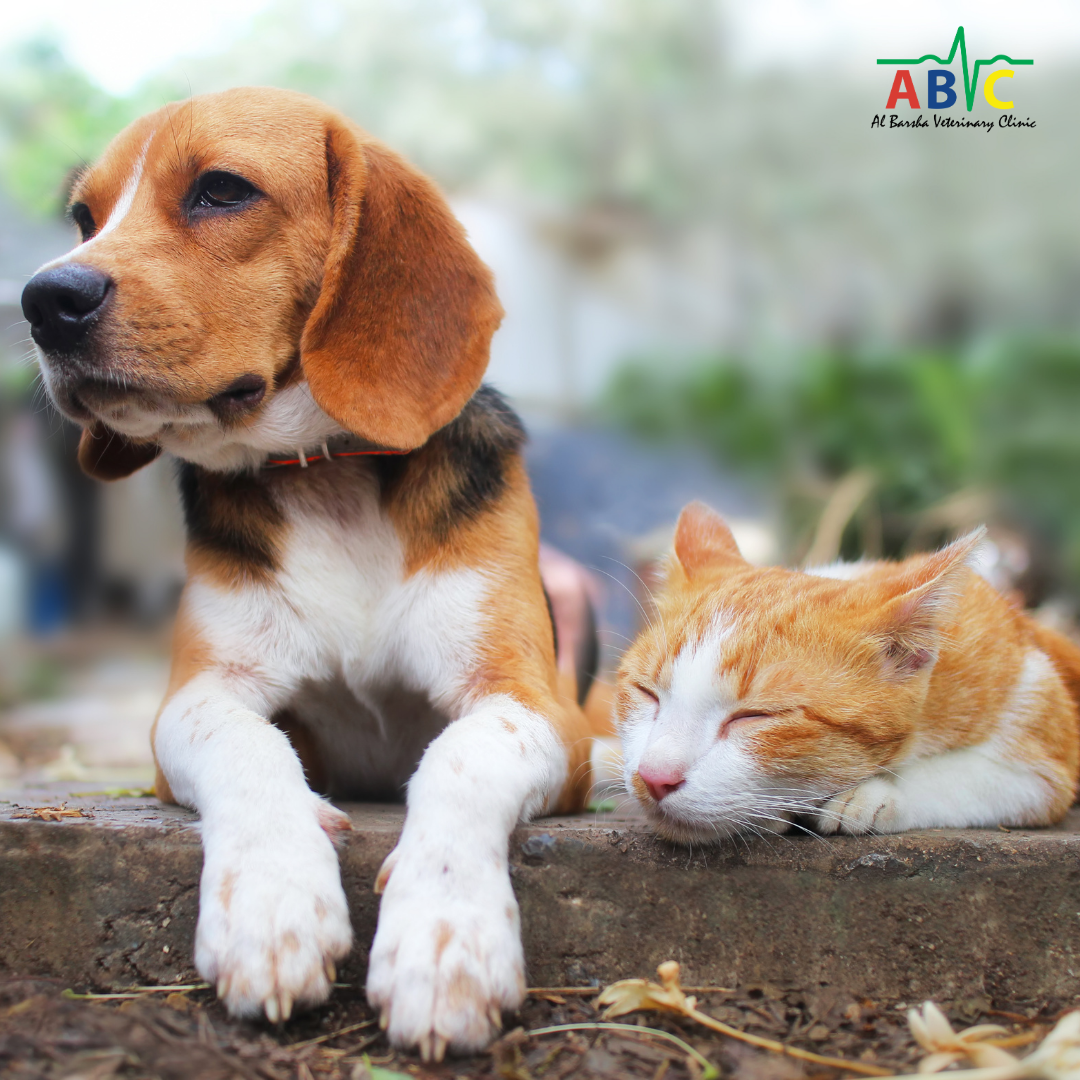
Gastrointestinal Diseases in Dogs, Cats, and Rabbits
Digestive problems are among the most common reasons we take our pets to the vet. A dog with diarrhea, a cat that won’t stop vomiting, or a rabbit that no longer wants to eat — all point to something amiss in the digestive tract.
If your furry friend is suddenly turning their nose up at dinner, having messy bathroom habits, or just not acting like themselves—gastrointestinal (GI) issues might be to blame. From sneaky parasites to food faux pas, digestive disorders are one of the most common reasons pets land in the vet’s office. So, here’s the lowdown so you can hunt for the signs, understand what causes them and what you can do to make your pet feel better ASAP
Let’s dive into the gut stuff and see what’s stirring the pot.
Dogs and Their Disastrous Diets
Dogs have a habit of turning anything remotely edible (or not) into a snack, and their digestive systems often pay the price. One of the top offenders? Acute gastroenteritis—aka “I ate something I shouldn’t have.” Whether it’s leftovers, trash, or a mystery item from the sidewalk, it can quickly trigger vomiting, diarrhea, and lethargy.
Then there’s pancreatitis, the result of fatty foods or too many table scraps. It’s painful, serious, and comes with a full-body “no thanks” to food.
Unvaccinated pups are also at risk for parvovirus, a nasty viral infection that causes bloody diarrhea and dehydration—and can be fatal if not caught early.
Let’s not forget parasites like roundworms and Giardia, which love to hitch a ride in young or rescue dogs, wreaking havoc in the gut. And for dogs with long-term issues? Chronic enteropathies (like IBD) are increasingly common and can turn meal times into a rollercoaster of symptoms.
Cats and Their Finicky, Mysterious Bellies
Cats are the drama queens of the digestive world—sometimes vomiting for days, other times hiding symptoms like pros. A frequent culprit? Hairballs. While somewhat normal, they can become a red flag if excessive. Then there’s constipation or megacolon, especially in older or overweight cats, which can cause serious discomfort and appetite loss.
Panleukopenia, the feline version of parvo, is a devastating viral illness—mostly affecting unvaccinated kittens—that crashes their immune and digestive systems.
Cats also suffer from chronic vomiting, often tied to IBD or food allergies, and sometimes part of a tricky condition called triaditis (inflammation of the intestines, liver, and pancreas—yikes!). Add in hard-to-diagnose pancreatitis, and it’s no wonder their tummies are a veterinary mystery box.
Rabbits: The Gut-Speed Specialists
Rabbit GI issues are like ticking time bombs—they escalate fast and hit hard. The most dreaded condition? Gastrointestinal stasis, when the gut just… stops. Caused by stress, pain, dental issues, or a low-fiber diet, stasis can lead to gas build-up, dehydration, and fatal complications if not treated promptly.
Even diet-related cecal dysbiosis—when the balance of good gut bacteria goes haywire—can throw things off. Too many pellets or sugary treats (yes, those yogurt drops) and not enough hay are usually to blame.
Young bunnies are especially delicate and can develop mucoid enteropathy or bacterial enteritis, including infections with Clostridium spiriforme or E. coli, which can be life-threatening. Moral of the story? Keep the hay flowing and the stress low.
Now you will probably be wondering how can we diagnose the problem?
Here’s How We Play Pet Gut Detective
The first step? Story time. Yep, I’ll ask all the questions—what your pet eats, if they got into the trash, any new treats or table scraps, changes at home, stress, travel, or whether their deworming is up to date. Even the tiniest detail can unlock the mystery.
Next comes a full physical exam—checking for bloating, discomfort, dehydration, temperature changes, and other subtle signs your pet may be hiding.
Then, we might dive into some tests:
- Bloodwork to check for infection, inflammation, or organ issues
- Fecal exams to hunt down parasites or bacteria
- X-rays or ultrasound to visualize blockages, foreign objects, or gut inflammation
And if your pet’s tummy trouble is chronic, weird, or just plain confusing, we might recommend endoscopy or intestinal biopsies to rule out heavy-hitters like cancer or inflammatory bowel disease.
“Doc, What Do I Feed Them Now?”
I get this question all the time. When your pup has a mild case of stomach upset, a bland diet of boiled chicken and white rice can work wonders for a few days. But—and this is key—it’s not a balanced long-term fix.
That’s where prescription GI diets shine. Formulas like Hill’s i/d or Royal Canin Gastrointestinal are made to be easy on the stomach, low in fat, and super digestible. They’re like spa food for your pet’s gut..
Wait—Can I Catch This From My Dog?!
Yep, some gut bugs can jump from pup to person. Bacteria like Giardia, Salmonella, and Campylobacter can be zoonotic—meaning they don’t care who they infect. So if your dog has diarrhea, now’s not the time for face kisses (we know it’s tempting), and definitely wash your hands after picking up poop or cleaning their bowls.
Pro tip: disinfect their dishes and water bowls regularly, not just when they’re sick.
Gut Feeling: Don’t Ignore the Signs
The truth is, GI issues are one of the top reasons pets come to the vet. And they’re not just “wait it out” problems. The sooner we figure out what’s wrong, the better—and that’s especially true for young puppies, curious kittens, and sensitive rabbits, who can crash fast.
So if your pet’s belly is acting up, let’s nip it in the bud. Whether it’s vomiting, diarrhea, gas, or just a “meh” attitude toward dinner, we’re here to get things moving again—literally. Because nothing makes us happier than wagging tails, purring cats, and rabbits enthusiastically demolishing their hay pile.
Written by: Dr. Razan Hassan El Moussawi – Veterinarian
CONTACT US TO BOOK AN APPOINTMENT
Email frontdesk@abvc.ae
Call 04-3408601
WhatsApp 050-3440987
